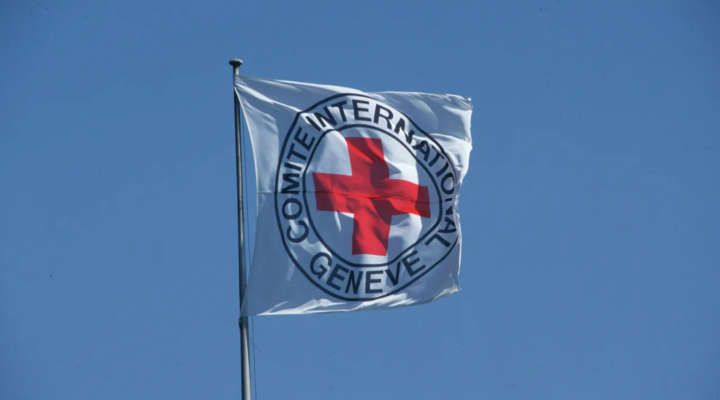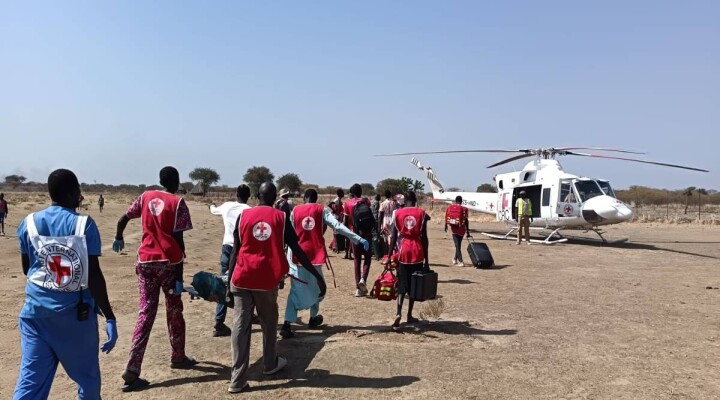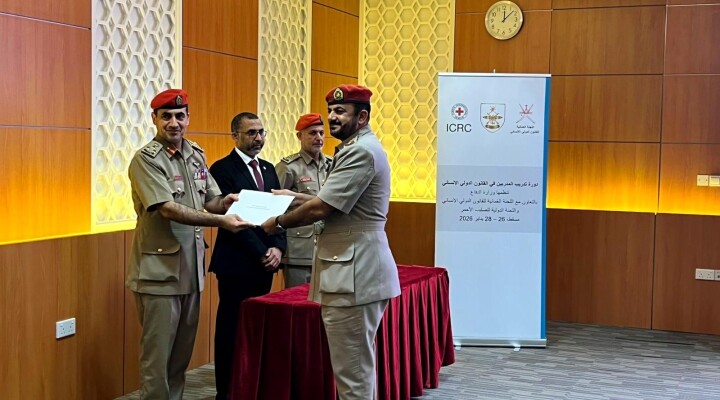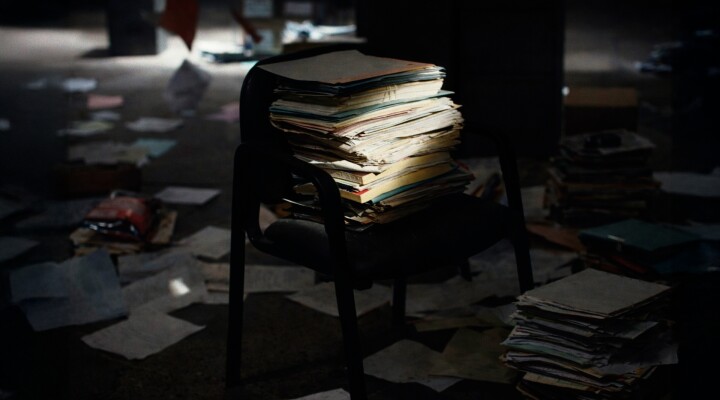Iraq: Has peace come to Mosul?
The battle for Mosul is over, but for thousands of families, the grief and horror continues. Some are trying, in the ruins of their city, to pay tribute to those who died.
In the district of Zanjili, clothes and keepsakes are hung on walls, even cars abandoned among the rubble have become a memorial.
Caught between warring parties who paid little or no attention to the requirement to safeguard civilians, Mosul’s families had nowhere to go to be safe.
“People fled hunger, mortar attacks, and heavy bombing,” says Shukri Mahmoud Abbas.
“People left their homes about half past seven in the morning. They fled one kind of death, only to meet another kind of death.”
As they tried to flee, Mosul’s citizens became targets. Deliberately targeting civilians is prohibited under the laws of war.
“My son was hit in the knee, he was crawling along the street,” says Shukri.
“I had a leg injury too, but mine was minor.”
“He lay here, bleeding, and he died at around four in the afternoon, he bled to death.”
Mothers, fathers, husbands, and wives could do nothing to save their loved ones.
“My wife was shot dead as we were crossing the street near the Pepsi factory,” says Habash Saleh Mahmoud.
“There were shots coming from all directions. Only Allah knew where they were coming from.”
“There were rounds of mortar shells, the bullets were raining down.”
Habash’s niece was also killed. Her family could not even give her the dignity of a burial.
“Her body stayed lying in the street for a month until the Rapid Response [forces] came and took it to the other side.”
Every family in Zanjili has suffered. The end of the battle for Mosul was one of the most brutal in modern history. The fighting may be over now, but Shukri is still tortured by his memories.
“There was an old disabled man in a wheelchair being pulled by his young son near here,” he remembers.
“What did the sniper do? He did not kill the father because he was disabled and of no use to him. Instead, he shot the child. By Allah, just there. The child fell into his father’s lap.”
“When I came back to get the body of my dead son, I found the man dead with his son still in his arms. The old man? Who could get him out? Who could push him? No one. He died of hunger and thirst with his son in his arms because he could not move on his own.”
“Where else does this happen? There is absolutely no humanity here. By God.”
Has peace come to Mosul? For Habash, Shukri and so many other grieving families, it does not feel that way.
Zanjili’s homes, schools, hospitals and places of worship are destroyed. No wonder its residents cling so hard to the memories of what they have lost. Every day the people of Mosul gather at the wall to remember, but those memories are very hard to bear.
The ICRC works to help the innocent victims of war.
In November 2017 the ICRC delivered food and household items to 35,000 people in Zanjili.
This represents a small part of ICRC assistance to the people of Mosul this year.
For further information, please contact:
Iolanda Jaquemet, ICRC Geneva +41 79 447 37 26
Saleh Dabbakeh, ICRC Baghdad +964 780 928 40 21
Follow the ICRC on facebook.com/icrc and twitter.com/icrc
SHOTLIST
Location: Mosul, Iraq
Length: 3:41
Format: HD H264 mov
Producers: Various
Camera: Ibrahim Sherkhan
ICRC ref: AV810N_Iraq_Mosul_Memories
Date: 4.12.2017
Copyright: ICRC access all
0:00 – 0:18 Abandoned clothes and shoes on walls, cars
0:18 – 0:30 Soundbite (Original Arabic) Habash Saleh Mahmoud.
“People fled hunger, mortar attacks, and heavy bombing. People left their homes about half past seven in the morning. They were trying to escape, Instead they met death.”
0:30 – 0:46 Ruined streets and buildings
0:46 – 1:09 Soundbite (Original Arabic) Habash Saleh Mahmoud. ““My son was injured (shot?) in the knee, he was crawling along the street. I had a leg injury too, but mine was minor. My son bled to death around four in the afternoon.”
1:09 – 1:18 Ruined streets
1:18 – 1:36 Soundbite (Original Arabic) Shukri Mahmoud Abbas. “My wife was shot dead as we were crossing the street near the Pepsi factory. There were shots coming from all directions. (Only Allah knew where they were coming from.”) There were rounds of mortar shells, the bullets were raining down.”
1:36 – 1:42 Inside Shukri’s house, children
1:42 – 1:59 Soundbite (Original Arabic) Shukri Mahmoud Abbas. “Her body stayed lying in the street for a month until the Rapid Response [forces] came and took it to the other side.
1:59 – 2:04 Shukri in his doorway.
2:04 – 2:08 Destroyed houses
2:08 – 2:16 Destroyed apartment blocks
2:16 – 2:59 Soundbite (Original Arabic) Habash Saleh Mahmoud. “There was an old disabled man in a wheelchair being pulled by his young son near here. What did the sniper do? He did not kill the father as he was disabled and of no use to him. Instead, he shot the child. By Allah, just there. The child fell into his father’s lap.
When I came back to get the body of my dead son, I found the man dead with his son still in his arms. The old man? Who could get him out? Who could push him? No one. He died of hunger and thirst with his son in his arms because he could not move on his own.
Where else does this happen? There is absolutely no humanity here. By God.”
2:59 – 3:16 Ruined streets
3:16 – 3:41 Various memorial wall, people looking, holding items. In last shot can hear Habash saying he would not wish such a fate on any human being.



